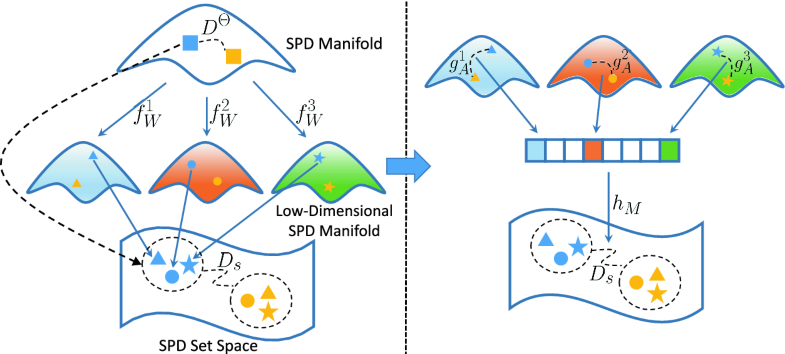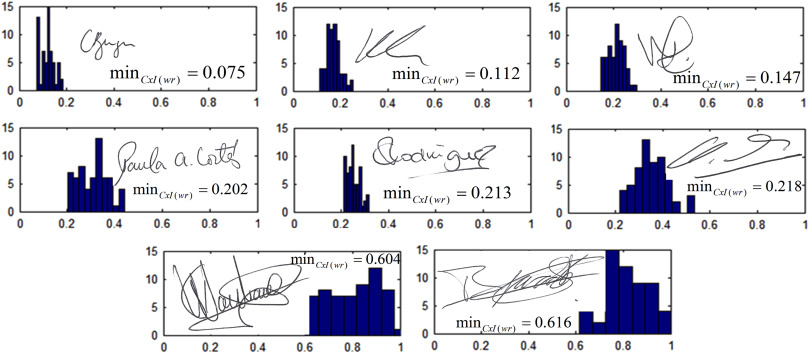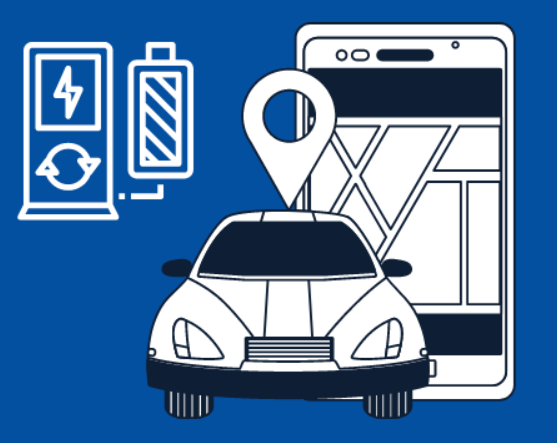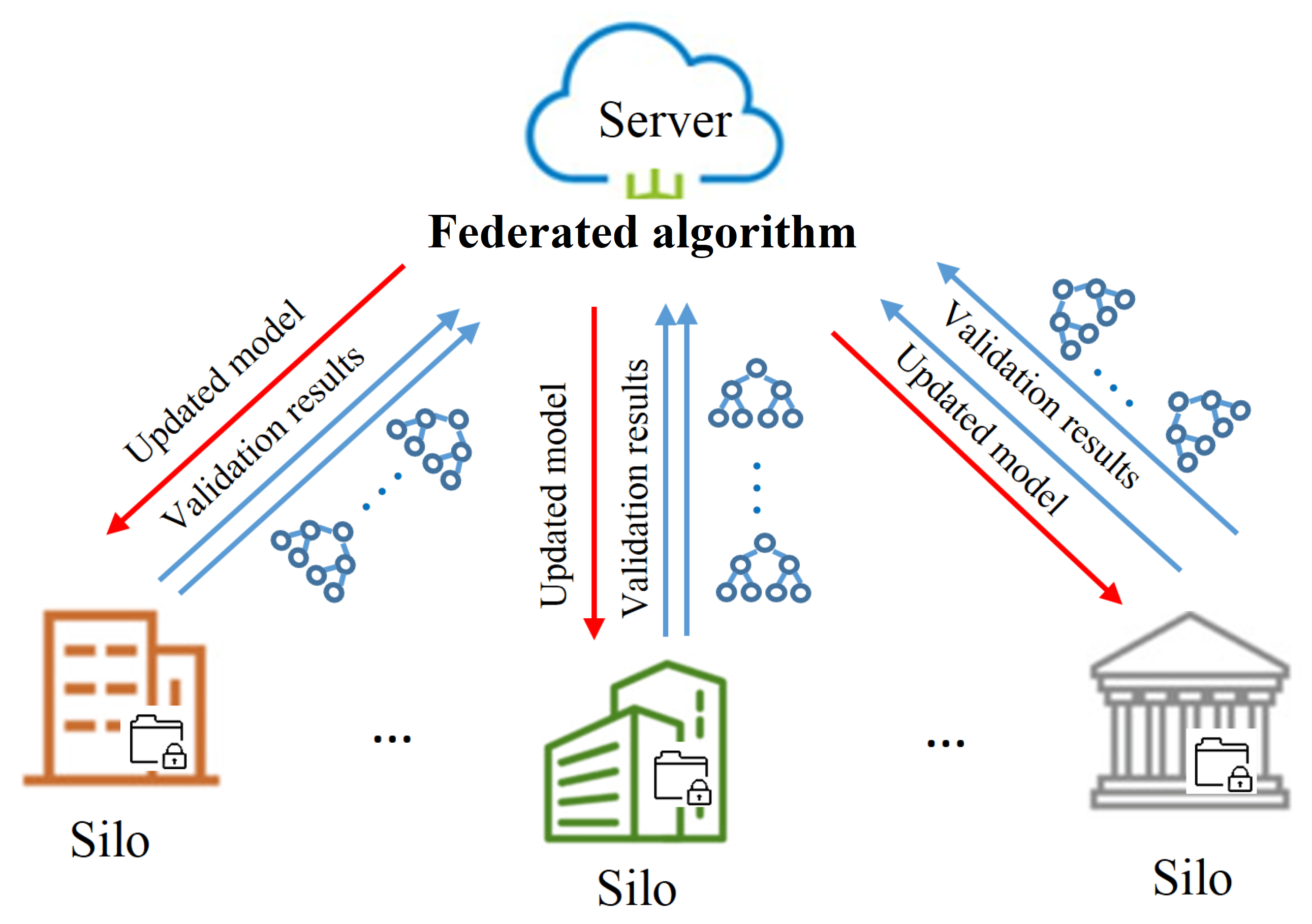“Meta-heuristic optimization methods on SPD Manifolds and applications to Computer Vision”
Diploma Theses for the Academic Year 2022-2023
Brief Description:
State of the art methods in Computer Vision and Machine Learning are now modeled as optimization problems with constraints expressed in the form of Symmetric Positive Definite (SPD) matrices. Solving such optimization problems is difficult due to the fact that the SPD space is not a vector space, thus SPD constrained optimization presents particular problems. In this thesis, we propose a meta-learning method to automatically learn an iterative optimizer in multiple SPDs. Specifically, a recurrent model will be studied and implemented in the form of an LSTM network, whose parameters are elements of the SPD space. For more details the reader may refer to the following scientific paper [1].
Indicative Publications:
[1] Gao, Z., Wu, Y., Jia, Y., & Harandi, M. (2020). Learning to optimize on spd manifolds. In Proceedings of the IEEE/CVF Conference on Computer Vision and Pattern Recognition (pp. 7700-7709).
Required background knowledge: Linear Algebra, Geometry in computer vision, Digital Signal Processing, Digital Image Processing, MATLAB, C/C++, Python
Place: ZB203 – Research Laboratory TelSiP
Supervisor: Dr. Elias Zois, Associate Professor
Student: Alexios Giazitzis
“Computer Vision and Pattern Recognition techniques for Biometric Authentication”
Brief Description:
This dissertation aims to use Machine Learning and Computer Vision techniques for biometric handwritten signature verification. For more details the reader may refer to the following scientific paper [1].
Indicative Publications:
[1] Diaz, M., Ferrer, M. A., Impedovo, D., Malik, M. I., Pirlo, G., & Plamondon, R. (2019). A perspective analysis of handwritten signature technology. Acm Computing Surveys (Csur), 51(6), 1-39.
Required background knowledge: Linear Algebra, Geometry in computer vision, Digital Signal Processing, Digital Image Processing, MATLAB
Place: ZB203 – Research Laboratory TelSiP
Supervisor: Dr. Elias Zois, Associate Professor
Student: Maria Dimitropoulou
“Robust Machine Learning techniques for measuring distances on the SPD Manifold”
Brief Description:
As This dissertation aims to adapt multi-metric learning techniques to manifolds through covariance matrices. Manifolds are state of the art methodologies applied in Machine Learning and Computer Vision applications. For more details the reader may refer to the following scientific paper [1].
Indicative Publications:
[1] Gao, Z., Wu, Y., Harandi, M., & Jia, Y. (2019). A robust distance measure for similarity-based classification on the SPD manifold. IEEE transactions on neural networks and learning systems, 31(9), 3230-3244.
Required background knowledge: Linear Algebra, Geometry in computer vision, Digital Signal Processing, Digital Image Processing, MATLAB, C/C++, Python
Place: ZB203 – Research Laboratory TelSiP
Supervisor: Dr. Elias Zois, Associate Professor
Student: Antonios Kalaitzakis
“Computer vision algorithms for representatives selection of big data set”
Brief Description:
In this dissertation we will consider the problem of finding some proxy for a data set, that is, a subset of data points that effectively describes the entire data set. We assume that each data point can be expressed as a linear combination of the proxies and formulate the problem of finding the proxies as a multi-measure sparse vector problem. In our formulation, both the dictionary and the metrics are given by the data table, and the unknown sparse codes select the agents through convex optimization. Apps include video summary. For more details the interested reader may refer to [1], [2].
Indicative Publications:
[1] Elhamifar, E., Sapiro, G., & Vidal, R. (2012, June). See all by looking at a few: Sparse modeling for finding representative objects. In 2012 IEEE conference on computer vision and pattern recognition (pp. 1600-1607). IEEE.
[2] Elhamifar, E., & Vidal, R. (2013). Sparse subspace clustering: Algorithm, theory, and applications. IEEE transactions on pattern analysis and machine intelligence, 35(11), 2765-2781.
Required background knowledge: Linear Algebra, Geometry in computer vision, Digital Signal Processing, Digital Image Processing, MATLAB, C/C++, Python
Place: ZB203 – Research Laboratory TelSiP
Supervisor: Dr. Elias Zois, Associate Professor
Student: Stavros Lampropoulos
“Design and implementation of a web application for planning trips with an electric vehicle”
Brief Description:
It is well known that in recent years there have been concerted efforts by developed countries to orient the mobility sector towards sustainable development. This results in the rapid development of electric mobility both in Greece and throughout the world. The autonomy of electric vehicles is very important, especially when they are used for long distance travels. Mapping public charging infrastructure is equally important, so that electric vehicle travel planning is possible. For this purpose, platforms such as the Open Charge Map, which is one of the largest open data registries for electric vehicle chargers, have been implemented. Electric vehicle drivers are able to contribute in improving the capture of this information, as in addition to the online version of the application, there is also a corresponding application for mobile phones (Android and iOS).
The purpose of the Diploma Thesis is to design and implement, a web application with a friendly interface for electric vehicle drivers, which will use this or similar open data, so that they are able to easily and safely plan the their upcoming travels. It has been proven that frequent and planned stops are important, both for safety purposes (the rest of both driver and passengers), as well as for the necessary charging of the electric vehicle, mainly at Motorist Service Stations on the national roads.
It will focus on how an upcoming trip by electric car can be realized and propose possible scenarios by calculating both the time and cost of the journey, based on the characteristics of each vehicle and the selected route. By selecting a vehicle, the WebApp knows the average consumption and range according to WLTP – World Harmonized Light-Duty Vehicles Test Procedure. Additionally, it will take in count the current state of charge (SoC – State of Charge) of the vehicle, as well as the available charging infrastructures.
For the implementation of the web application, it is recommended to use the open-source JavaScript framework “ReactJS”, developed by Facebook.
Required background knowledge: Linux, Docker, NodeJS, ReactJS, html, css, Databases
Place: ZB203 – Research Laboratory TelSiP
Supervisors:
Dr. Grigorios Koulouras, Associate Professor
Dr. Sotiria Galata, Assistant Professor
Student: Marious Botsi
“Smart access control system for stores using NB-IoT technologies “
Brief Description:
Without a doubt, our daily lives, as well as the conditions we are experiencing in recent months, are unprecedented for each of us. No one can predict with certainty the effects that the spread of the pandemic will have on our health. A large number of stores in our country have suspended their operation, while many stores operate in the form of click away. However, most people prefer to do their shopping as usual. For this reason, some measures had to be taken regarding the maximum number of people allowed in each closed area of a store based on a protocol due to a pandemic. In order to control the number of customers, who make their purchases at the same time, it was necessary to create an intelligent access control system for stores. As part of this Thesis, will be the creation of such a system that are going to use NarrowBand-Internet of Things (NB-IoT) technology. The NB-IoT is a wireless Internet of Things (IoT) standard. It belongs to the category of Low Power Wide Area Networks (LPWAN), allowing the connection of devices that require small data traffic. It is essentially a technology in which wireless transmission is achieved over long distances, at low cost and low power. NB-IoT technology offers lower power consumption compared to conventional GSM technologies. This allows great energy autonomy of the connected sensors and devices which can last up to 10 years with a single charge. It can provide reliable and strong coverage even when the devices are in the basement or underground. This technology can directly improve the life of modern society, as the services it offers, can facilitate everyone’s life both individually as well as collectively. The aim of this Thesis is to efficient manage the number of people entering a store, in order to comply with all regulations due to pandemic.
Required background knowledge: ΙοΤ, NB-IoT, Docker, Embedded Systems, LPWAN, Python
Place: ZB203 – Research Laboratory TelSiP
Supervisor: Dr. Grigorios Koulouras, Associate Professor
Student: George Polyzos
“Analysis and comparison of aggregation algorithms for optimizing Federated Learning techniques in cross-silo scenarios”
Brief Description:
In recent years, Computational Intelligence (CI) and Machine Learning (ML) have been playing an increasingly prominent role in our daily lives. However, classical Machine Learning methods are implemented on centralized supercomputing systems. The huge amount of data required to train these models creates problems such as: a) personal data management issues by legal frameworks (GDPR, CCPA, PIPEDA, etc.), b) high needs of network resources to serve the transfer of the data to the centralized systems, c) very large storage needs in the centralized systems, d) very large energy needs created by both the transfer and the storage of the data. A solution to these problems can be provided through a relatively new and emerging type of computational learning, the Federated Learning (FL), which was firstly proposed by Google researchers in 2016 [1]. Federated learning is applicable both in cross-device cases, where training is done with the assistance of many heterogeneous devices, and in cross-silo where training is distributed across organizations’ systems with given capabilities, creating more homogeneous data. The purpose of the Diploma Thesis is the optimization, through research, of Federated Learning techniques used in cross-silo scenarios. This will be done through analysis and comparison of the dominant aggregation algorithms used in the central systems, to create new central learning models and through the sub-models which are trained in the individual local systems. For this purpose, datasets proposed by the literature will be used and the overall system will be simulated through appropriate frameworks for Federated Learning.
Indicative Publications:
[1] H. B. McMahan, E. Moore, D. Ramage, S. Hampson, and B. A. y Arcas, “Communication-efficient learning of Deep Networks from Decentralized Data,” arXiv.org, 26-Jan-2023. [Online]. Available: https://arxiv.org/abs/1602.05629. [Accessed: 24-Mar-2023].
Required background knowledge: Cloud Computing, Docker, Python, NodeJS, Machine Learning
Place: ZB203 – Research Laboratory TelSiP
Supervisor: Dr. Grigorios Koulouras, Associate Professor
Student: Leonidas Mazarakis





